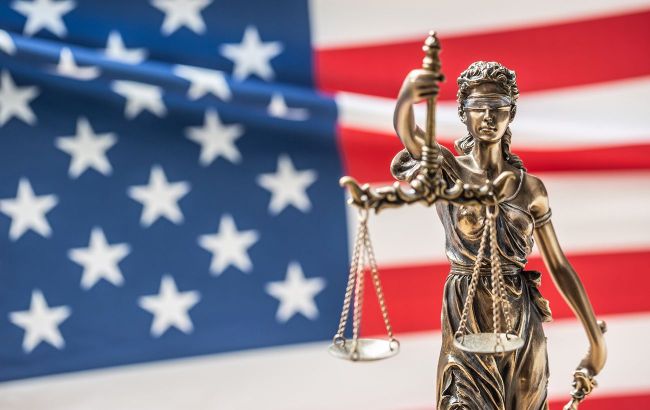US suspends deportation of group of migrants: Mistake sparks scandal
 Tensions rise in the US between the courts and the Trump administration (Illustrative photo: Getty Images)
Tensions rise in the US between the courts and the Trump administration (Illustrative photo: Getty Images)
The US Supreme Court has temporarily halted the deportation of a group of men accused of having ties to gangs. The Trump administration insists on their deportation, according to Reuters, CNN, and Bloomberg.
The court made this decision after the men's lawyers petitioned for urgent intervention, stating that they faced imminent deportation without a court hearing that had previously been scheduled by the judges.
"The Government is directed not to remove any member of the putative class of detainees from the United States until further order of this Court," the judges stated in a brief unsigned ruling.
Conservative justices Clarence Thomas and Samuel Alito publicly disagreed with the decision, which was made on Saturday, April 19, around 12:55 a.m. Washington time.
It was not immediately clear how many Venezuelans were awaiting deportation and where exactly they would be sent.
The majority of the Supreme Court justices decided after the American Civil Liberties Union (ACLU) lawyers submitted urgent requests for immediate action to several courts.
Lawyers reported that the men were put onto buses and told they would be deported on Friday afternoon. The detainees were allegedly given a notice written only in English, which did not explain how they could challenge their deportation or how much time they had to do so.
Most of the attorneys and the families of the migrants claim that they were not members of gangs and had no chance to contest the government’s claim that they were.
Although lower courts rejected the ACLU’s request, the Supreme Court temporarily halted the potential deportation.
Trump's administration demands deportation
The Trump administration, in response, urged the justices to officially reject the American Civil Liberties Union's request on behalf of the migrants.
In a 15-page filing, US Attorney General John Sauer stated that the detainees' lawyers were wrong to approach the justices without allowing lower courts time to rule on whether the men were given a proper opportunity to challenge their deportation in court.
According to Sauer, the court should at least clarify that its ruling does not prevent the government from deporting individuals using other legal tools, including national immigration laws.
The Trump administration has already deported over 200 Venezuelan and Salvadoran men, whom it considers to be gang members, to a high-security prison in El Salvador.
The White House is operating under the Alien Enemies Act of 1798. The men were accused of being affiliated with the transnational gang Tren de Aragua from Venezuela, although according to investigators, only a small portion of them had ever been officially charged with serious crimes in the US.
Among the deported was Kilmar Abrego García, a Salvadoran immigrant who, according to the administration, was mistakenly deported, causing outrage over its immigration policy.
The Trump administration informed the Supreme Court that it seeks to obtain the authority to deport a group of Venezuelans detained in Texas using other laws.
The Department of Justice initially argued that the justices should reject the request to halt the deportation on the grounds of broad wartime powers.
However, as a backup argument, the Trump administration told the Supreme Court that it seeks clarity on whether it can deport at least part of the same group of migrants under less controversial immigration laws.
Trump's anti-immigrant policy
After Donald Trump took office as president, he and his administration initiated mass deportations of foreign migrants from the country.

